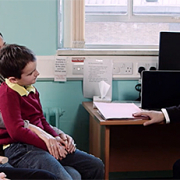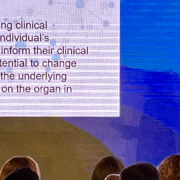NHS targets better diabetes care with genomic testing
New initiative aims to find thousands of people with a rare, inherited form of diabetes
The NHS is rolling out a genomic test across England to identify a rare form of diabetes, known as monogenic diabetes, as part of a new programme in partnership between the NHS’s Genomic Medicine Service and Diabetes Programme.
It is thought that around 12,000 people in England have the condition, which if left undiagnosed can mean patients struggle to manage blood glucose levels and have greater risk of developing complications.
Specialist training
The new programme includes training and support for a designated nursing and medical lead in each Trust in England. Up to 280 staff will be trained up over the next year, supported by a national virtual training package developed by an expert monogenic diabetes team at the Royal Devon and Exeter NHS Foundation Trust. Practical support will be provided by 15 specialist genetic diabetes nurses.
NHS national speciality adviser for diabetes Professor Partha Kar said: “We are already making progress against the goals set out in the NHS Long Term Plan for better diabetes care, and the rollout of this programme will mean more patients across the country will benefit from access to specialist genetic testing and optimised treatment.”
What is monogenic diabetes?
Monogenic diabetes is caused by a variant in a single gene passed down from an affected parent. Each child has a 50% chance of inheriting the gene variant and therefore developing diabetes. The condition makes up 1-in-50 diabetes cases.
Monogenic diabetes is difficult to diagnose without genomic testing, as it lacks any clear distinguishing signs compared with Type 1 or 2. It can, however, often be traced back through multiple generations in the individual’s family tree. People with Type 1 or 2 diabetes may be genetically predisposed to developing it, but the inheritance pattern is less clear and other factors can be influential.
There are two types of monogenic diabetes: maturity-onset of the young (MODY) and neonatal. The three main features of MODY are that it often develops before the age of 25, is passed down from an affected parent, and does not necessarily need insulin treatment. Neonatal diabetes is diagnosed within the first six months of life, so is easier to identify from this criteria alone, but the gene variant still needs to be identified through genetic testing.
Why is it important to diagnose monogenic diabetes?
Most patients newly diagnosed with monogenic diabetes will be able to manage their condition better by taking tablets or by diet to control their glucose levels instead of having to endure often unnecessary and time-consuming insulin injections (if it was previously diagnosed as Type 1 diabetes).
Testing can also identify affected family members, including whether children have inherited the gene variant and will go on to develop monogenic diabetes.
Jen Gerrard, a 45-year-old transport business owner from Wigan, was revealed to have monogenic diabetes rather than Type 1 diabetes after a genomic test. She said: “Since I was diagnosed and my treatment was changed from insulin injections to tablets, I feel much better in myself as my blood sugar levels are now stable and I don’t have the highs and lows that I used to.
“I used to have damage to the blood vessels at the back of my eyes due to my diabetes, but since getting the correct genetic diagnosis my blood glucose control is much better with the tablet treatment and that has dramatically improved.”
The programme was also welcomed by patient charity Diabetes UK. Head of care Dan Howarth said: “The rollout of this programme is a significant and hugely positive development. It will help ensure people will get the most appropriate treatment and support for this rare type of diabetes, meaning blood sugar levels can be better managed, and the risks of developing the devastating complications of diabetes can be reduced.”
Learn more
To find out more about monogenic diabetes, you can read some of our previous articles and resources, including:
- A day in the life of a genetic diabetes nurse
- MODY factsheet for clinicians
- Nursing training initiative co-funded by the Genomics Education Programme
–









